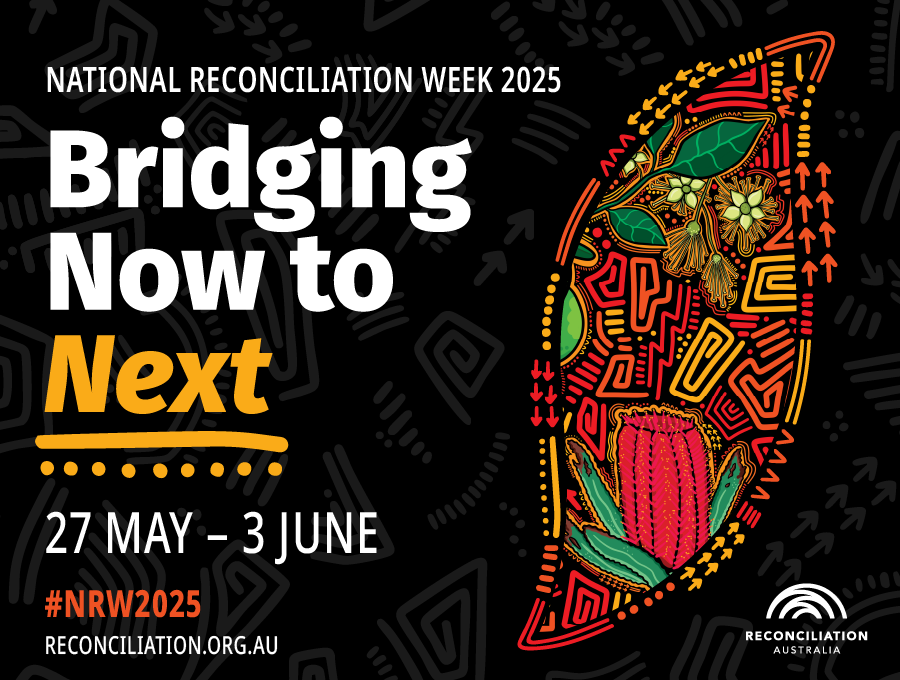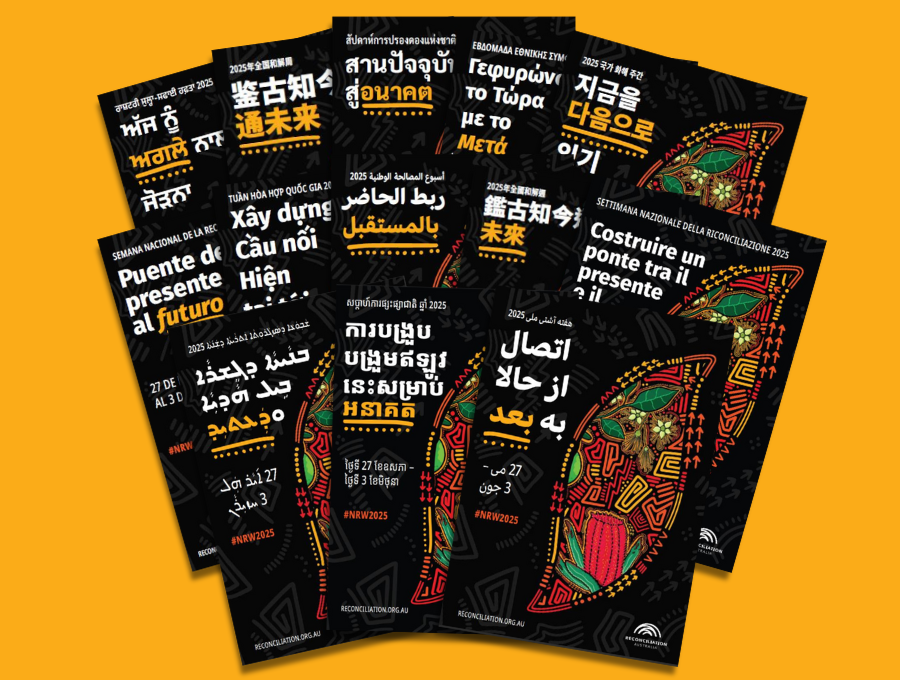National Reconciliation Week (NRW) is a time for all Australians to learn about our shared histories, cultures, and achievements, and to explore how each of us can contribute to achieving reconciliation in Australia.
What is National Reconciliation Week?
The dates for NRW remain the same each year; 27 May to 3 June. These dates commemorate two significant milestones in the reconciliation journey – the successful 1967 referendum, and the High Court Mabo decision respectively.
Reconciliation must live in the hearts, minds and actions of all Australians as we move forward, creating a nation strengthened by respectful relationships between the wider Australian community, and Aboriginal and Torres Strait Islander peoples.
We all have a role to play when it comes to reconciliation, and in playing our part we collectively build relationships and communities that value Aboriginal and Torres Strait Islander peoples, histories, cultures, and futures.
The National Reconciliation Week 2026 theme will be announced in late 2025.
NRW 2025: Bridging Now to Next

The NRW 2025 theme, Bridging Now to Next, spoke to the ongoing connection between past, present and future.
Bridging Now to Next called on all Australians to step forward together, to look ahead and continue the push forward, guided by the lessons of the past.
Read more about the 2025 theme
In the theme artwork created by Kalkadoon woman Bree Buttenshaw, native plants − which are known for regenerating after fire and thriving through adversity − symbolised our collective strength and the possibilities of renewal.
NRW 2025 resources including the poster, t-shirt design and colouring sheets are still available for download.
Events submission for NRW 2025 has closed but there are still some events and exhibitions ongoing on our National Reconciliation Week 2025 Calendar.
Translated resources and more information on reconciliation and NRW, in 13 languages other than English, are also available.
Voices for Reconciliation 2025: Solid Rock

Nearly 700 choirs and singing groups from across Australia raised their Voices for Reconciliation in 2025. Together, they sang Goanna classic Solid Rock, written by Shane Howard.
We loved every video sent to us and shared to social media from schools, workplaces and community choirs up and down the country. Every video we received is up on our YouTube channel.
Sing it with gusto, sing it like you mean it, sing it like it matters, because it does.
Shane Howard
NRW: A brief history
National Reconciliation Week started as the Week of Prayer for Reconciliation in 1993 (the International Year of the World’s Indigenous Peoples) and was supported by Australia’s major faith communities.
In 1996, the Council for Aboriginal Reconciliation launched Australia’s first National Reconciliation Week.
In 2001, Reconciliation Australia was established to continue to provide national leadership on reconciliation.
In the same year, approximately 300,000 people walked across Sydney Harbour Bridge as part of National Reconciliation Week – and subsequently across bridges in cities and towns throughout Australia – to show their support for reconciliation.
Today, National Reconciliation Week is celebrated in workplaces, schools and early learning services, community organisations and groups, and by individuals Australia-wide.





